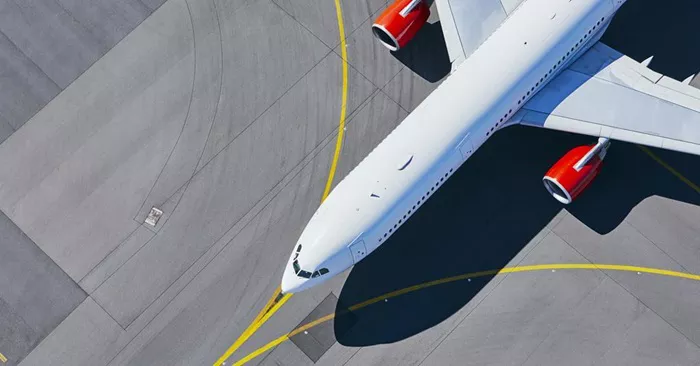End supplier failure, in the realm of travel insurance, refers to the financial collapse or insolvency of a travel service provider, such as an airline, hotel, or car hire company. When an end supplier fails, it can have severe repercussions for travelers, potentially resulting in the loss of services they have already paid for.
Impact on Travel Plans
The impact of end supplier failure on travel plans can be significant. Imagine booking a dream vacation, including flights, accommodation, and tours, only to find out that the airline has gone bankrupt or the hotel has closed its doors. Travelers may find themselves stranded without a place to stay or facing unexpected expenses to rebook flights or find alternative accommodations.
Travel Insurance Coverage
Travel insurance is designed to provide financial protection against various risks associated with travel, including end supplier failure. However, it’s essential to understand that not all travel insurance policies automatically include coverage for end supplier failure. Therefore, travelers need to carefully review their policy documents to determine if this protection is included or if it needs to be added as an optional extra.
Scheduled Airline Failure Insurance (SAFI)
Scheduled Airline Failure Insurance (SAFI) is a specific type of coverage that protects travelers against the financial collapse of an airline. SAFI typically covers expenses such as the cost of unused flight tickets, additional accommodation expenses, and the cost of alternative transportation arrangements. While some comprehensive travel insurance policies may include SAFI as standard, it is also available as an optional add-on for those who want additional protection against airline bankruptcies.
Package Holiday Protections
Booking a package holiday through a reputable tour operator can provide travelers with additional financial protections against end supplier failure. For example, in the UK, package holidays are often protected by schemes such as the Air Travel Organiser’s Licence (ATOL) or membership in the Association of British Travel Agents (ABTA). These schemes offer consumers refunds or repatriation if their tour operator goes out of business.
Credit Card Protections
In addition to travel insurance, travelers may also benefit from certain protections when paying for travel services with a credit card. Many credit card companies offer consumer protections, such as chargeback rights, which allow cardholders to dispute transactions and seek refunds if services are not provided as promised. While credit card protections may not offer comprehensive coverage for end supplier failure, they can provide an additional layer of security for travelers.
Cost of End Supplier Failure Insurance
The cost of adding end supplier failure coverage to a travel insurance policy can vary depending on factors such as the traveler’s age, destination, and the level of coverage required. Generally, adding this coverage is relatively inexpensive compared to the potential financial losses that could occur if an end supplier were to fail. Travelers should weigh the cost of the insurance premium against the potential risks and expenses they could face if an end supplier were to collapse.
Choosing the Right Policy
When selecting a travel insurance policy, it’s essential to consider the level of coverage provided for end supplier failure and other potential risks. Travelers should carefully review policy documents to understand what is covered, any exclusions or limitations, and the process for making a claim in the event of an end supplier failure. Additionally, travelers should compare quotes from multiple insurance providers to ensure they are getting the best value for their money.
Conclusion
End supplier failure is a significant risk that travelers face when booking and paying for travel services. While travel insurance can provide financial protection against this risk, it’s crucial for travelers to understand what is covered by their policy and to choose a policy that meets their specific needs and budget. By taking the time to research and compare travel insurance options, travelers can ensure they have the necessary coverage in place to protect themselves against unforeseen circumstances while traveling.
FAQs about Travel Insurance
1. What is the difference between scheduled airline failure and end supplier failure?
Scheduled airline failure and end supplier failure are both risks associated with travel, but they differ in whom they affect.
Scheduled Airline Failure: This occurs when an airline company goes out of business or faces financial insolvency, leading to disruption or cancellation of flights booked by passengers.
End Supplier Failure: This refers to the failure of any other travel service provider besides airlines, such as hotels, car rental agencies, or tour operators. If any of these service providers go bankrupt or cease operations, it can affect your travel plans, accommodations, or activities.
2. What is the end of supplier failure?
The end of supplier failure is the scenario where a travel service provider, other than an airline, becomes financially insolvent or ceases operations. This can result in disruptions to your travel plans, such as hotel closures, tour cancellations, or the inability to use prepaid services like car rentals.
3. What does failure insurance mean?
Failure insurance, also known as travel insurance with end supplier failure cover, is a type of insurance policy that protects travelers against financial losses incurred due to the insolvency or cessation of operations of a travel service provider. It typically covers expenses such as accommodation costs, alternative travel arrangements, or refunds for prepaid services affected by the failure of an end supplier.
4. Do you need scheduled airline failure on travel insurance?
Whether you need scheduled airline failure cover on your travel insurance depends on your specific travel plans and preferences. If you’re booking flights independently or through an airline directly, having coverage for scheduled airline failure can provide financial protection in case the airline faces financial difficulties or goes out of business. However, if you’re primarily concerned about other travel service providers, such as hotels or tour operators, then you may prioritize end supplier failure cover instead.
You Might Be Interested In




















